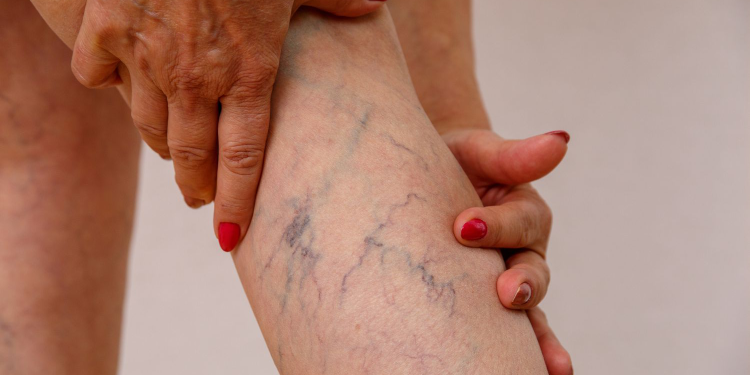Varicose veins, those swollen and twisted veins that often appear on the legs, are a common concern for many individuals, especially among pregnant women. While they can affect anyone, pregnancy is a time when the likelihood of developing varicose veins increases significantly, Understanding the connection between pregnancy and varicose veins becomes crucial, especially for expectant mothers. This blog will delve into the intricacies of this link, shedding light on what every mom should know about varicose veins and emphasizing the importance of consulting a varicose veins doctor in Jaipur for comprehensive care and guidance.
Understanding Varicose Veins
Varicose veins are enlarged, twisted veins that commonly appear on the legs and feet. They occur when the valves within the veins, responsible for regulating blood flow, weaken or malfunction. This leads to a pooling of blood in the veins, causing them to swell and become visibly distorted. While varicose veins can affect anyone, pregnant women are particularly susceptible due to the physiological changes that occur during gestation.
The Pregnancy Connection
Pregnancy brings about significant changes in a woman’s body to accommodate the growing fetus. The volume of blood in the body increases to support both the mother and the developing baby. Hormonal fluctuations, specifically the rise in progesterone, contribute to the relaxation of blood vessel walls. Additionally, the expanding uterus exerts pressure on the pelvic veins, impeding the smooth return of blood from the legs to the heart.
As a result of these factors, the veins in the legs may struggle to efficiently transport blood, leading to the development or exacerbation of varicose veins. This is especially true during the later stages of pregnancy when the demand on the circulatory system is at its peak.
Preventive Measures
While the development of varicose veins during pregnancy may seem inevitable, there are proactive steps that expecting mothers can take to mitigate the risk and alleviate symptoms:
1. Regular Exercise
Engaging in low-impact exercises, such as walking or swimming, can promote circulation and strengthen the leg muscles, reducing the likelihood of varicose veins.
2. Elevating Legs
Elevating the legs whenever possible, especially after long periods of sitting or standing, helps alleviate pressure on the veins and encourages blood flow back to the heart.
3. Wearing Compression Stockings
Compression stockings provide external support to the veins, helping them function more efficiently and reducing the risk of varicose vein development.
4. Healthy Diet
A well-balanced diet that includes foods rich in fibre, antioxidants, and vitamins can contribute to overall vascular health.
Treatment Options
For mothers who develop varicose veins during pregnancy or find that existing vein issues worsen, several treatment options are available:
1. Compression Therapy
Compression stockings, prescribed by a healthcare professional, can be an effective non-invasive treatment to manage symptoms and prevent further deterioration.
2. Physical Activity
Continuing to engage in regular, doctor-approved exercise can aid in improving blood circulation and reducing the severity of varicose veins.
3. Elevating Legs
Elevating the legs remains a simple yet effective way to alleviate discomfort and promote blood flow.
4. Sclerotherapy
In some cases, a healthcare provider may recommend sclerotherapy, a procedure involving the injection of a solution into the affected veins to encourage their closure and redirect blood flow.
5. Surgical Intervention
For severe cases, surgical options such as veins stripping or laser treatments may be considered. These interventions are typically reserved for situations where conservative measures have proven ineffective.
Emotional Well-being
It’s essential to recognize that the physical changes associated with varicose veins during pregnancy can also impact a woman’s emotional well-being. The visible appearance of veins may contribute to self-esteem issues or body image concerns. Open communication with vascular surgeon in Jaipur, as well as support from friends and family, can play a crucial role in addressing these emotional aspects.
Conclusion
Pregnancy is a beautiful and complex journey, and understanding the link between pregnancy and varicose veins is a vital aspect of maternal health. By being proactive in adopting preventive measures, seeking timely medical advice, and embracing the changes that come with motherhood, women can navigate this aspect of their journey with greater ease. Every mom deserves to feel supported, informed, and empowered as they embark on the incredible adventure of bringing new life into the world.


 Home
Home









